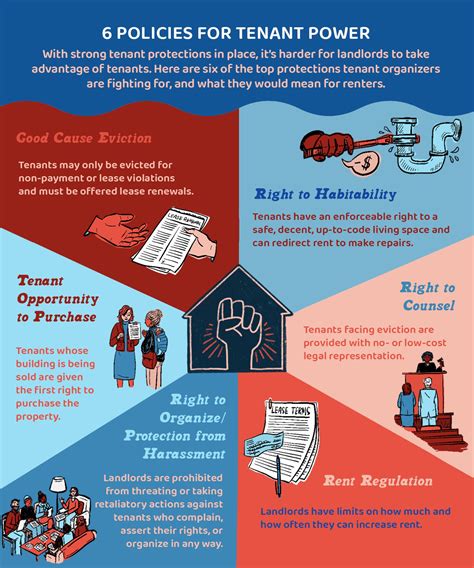
Matthew Johnson was executed by lethal injection in Texas on Tuesday, thirteen years after being convicted of fatally stabbing his 81-year-old grandmother, Hazel Stine, during a robbery.
HUNTSVILLE, Texas – Matthew Johnson, 36, was executed by the state of Texas on Tuesday evening for the 2010 murder of his grandmother, Hazel Stine, in her home near Joshua, south of Fort Worth. Johnson received a lethal injection at the state penitentiary in Huntsville and was pronounced dead at 6:33 p.m. local time. The execution marks the sixth carried out in Texas this year, a state known for its frequent use of capital punishment.
Johnson’s case has drawn attention due to the brutal nature of the crime and the familial relationship between the perpetrator and the victim. Stine, described by neighbors and family as a beloved and active member of her community, was found dead in her home after being stabbed multiple times. Evidence presented at trial indicated that Johnson, who had a history of drug abuse and financial struggles, targeted his grandmother for robbery.
According to court documents and trial testimonies, Johnson had been living with his grandmother on and off prior to the murder. He was aware that Stine received monthly social security checks, and prosecutors argued that he planned to steal the money to support his drug habit. On the day of the murder, Johnson visited Stine’s home, where an altercation ensued. Johnson confessed to stabbing his grandmother multiple times with a kitchen knife before stealing her purse, which contained approximately $300.
Following the murder, Johnson fled the scene and used the stolen money to purchase drugs. He was apprehended several days later after a witness reported seeing him driving Stine’s car. During questioning, Johnson initially denied involvement in the crime but eventually confessed after police presented him with incriminating evidence.
At trial, the prosecution presented a compelling case against Johnson, including his confession, witness testimony, and forensic evidence linking him to the crime scene. The defense attempted to argue that Johnson was under the influence of drugs at the time of the murder and that his mental state should be considered as a mitigating factor. However, the jury ultimately found Johnson guilty of capital murder and sentenced him to death.
In the years following his conviction, Johnson filed multiple appeals, arguing that his trial was unfair and that his legal representation was inadequate. These appeals were ultimately unsuccessful, and the Texas Court of Criminal Appeals upheld his conviction and death sentence. Johnson’s attorneys also filed appeals with the U.S. Supreme Court, but these were also denied.
Prior to his execution, Johnson expressed remorse for his actions in a written statement. “I want to say I’m sorry for the pain I caused Hazel Stine. I love her,” he wrote. He also expressed love for his family and friends and thanked them for their support.
The execution of Matthew Johnson has reignited the debate over the death penalty in Texas and across the United States. Supporters of capital punishment argue that it serves as a just punishment for heinous crimes and deters others from committing similar acts. Opponents argue that the death penalty is a cruel and unusual punishment that is disproportionately applied to people of color and those from low-income backgrounds. They also point to the risk of executing innocent people.
Texas remains one of the states with the highest number of executions in the country. In recent years, there have been increasing calls for the state to abolish the death penalty, but these efforts have so far been unsuccessful.
The Johnson case highlights the complex and often tragic nature of capital punishment cases, particularly those involving family members. It serves as a reminder of the devastating impact of violence and the profound consequences of crime on victims, families, and communities.
Background on Hazel Stine
Hazel Stine was remembered by those who knew her as a kind and generous woman who was actively involved in her church and community. She was known for her warm smile and her willingness to help others in need. Stine enjoyed gardening, reading, and spending time with her family and friends. Her murder shocked and saddened the community, and her loss continues to be felt by those who knew and loved her.
The Crime Scene and Investigation
The Johnson County Sheriff’s Office responded to Stine’s home after a neighbor reported concerns about her well-being. Upon arrival, deputies found Stine dead inside her residence, having suffered multiple stab wounds. The crime scene was secured, and investigators began collecting evidence, which included blood samples, fingerprints, and the murder weapon – a kitchen knife from Stine’s own kitchen.
Detectives quickly identified Matthew Johnson as a suspect, given his close relationship with the victim and his history of drug abuse and financial problems. Johnson was located and brought in for questioning. Initially, he denied any involvement in the murder. However, as investigators presented him with mounting evidence, including the fact that he had been seen driving Stine’s car and had made purchases with her stolen credit cards, Johnson eventually confessed to the crime.
Legal Proceedings and Appeals
Following his arrest, Matthew Johnson was indicted on a charge of capital murder, which carries a potential sentence of either life imprisonment without parole or the death penalty. The trial was held in Johnson County, and the prosecution presented a strong case against Johnson, relying on his confession, forensic evidence, and witness testimony.
The defense argued that Johnson was under the influence of drugs at the time of the murder and that his mental state should be considered as a mitigating factor. They also presented evidence of Johnson’s difficult upbringing and his struggles with addiction. However, the jury was not persuaded by the defense’s arguments and found Johnson guilty of capital murder.
During the punishment phase of the trial, the jury heard additional evidence about Johnson’s background and his prior criminal history. After deliberating for several hours, the jury returned a verdict of death.
Following his conviction and death sentence, Johnson filed numerous appeals, challenging various aspects of his trial and his legal representation. He argued that his confession was coerced, that the jury was biased, and that his attorneys had failed to adequately represent him. However, the Texas Court of Criminal Appeals rejected his appeals, and the U.S. Supreme Court declined to hear his case.
The Execution
In the days leading up to his execution, Matthew Johnson was held in a special cell at the state penitentiary in Huntsville. He was allowed visits from his family and his attorneys, and he was provided with meals and access to religious services.
On the day of his execution, Johnson was given the opportunity to make a final statement. In his statement, he expressed remorse for his actions and apologized to the family of Hazel Stine. He also thanked his family and friends for their support.
At 6:33 p.m. local time, Matthew Johnson was executed by lethal injection. His execution was witnessed by members of his family, as well as representatives from the media and the Texas Department of Criminal Justice.
Victim Impact and Community Reaction
The murder of Hazel Stine had a profound impact on her family and her community. She was remembered as a loving and generous woman who was always willing to help others. Her death left a void in the lives of those who knew her, and her memory continues to be cherished.
The community of Joshua, Texas, was deeply shocked and saddened by the crime. Residents expressed outrage and disbelief that such a brutal act could occur in their quiet town. Many attended Stine’s funeral to pay their respects and to show their support for her family.
Arguments for and Against the Death Penalty
The execution of Matthew Johnson has reignited the debate over the death penalty in Texas and across the United States. Supporters of capital punishment argue that it serves as a just punishment for heinous crimes and deters others from committing similar acts. They point to the fact that Johnson was convicted of a particularly brutal murder and that he had exhausted all of his legal appeals.
Opponents of the death penalty argue that it is a cruel and unusual punishment that is disproportionately applied to people of color and those from low-income backgrounds. They also point to the risk of executing innocent people. They argue that life imprisonment without parole is a sufficient punishment for even the most heinous crimes.
Texas and the Death Penalty
Texas has a long history of using the death penalty. Since the reinstatement of capital punishment in the United States in 1976, Texas has executed more inmates than any other state. In recent years, there have been increasing calls for the state to abolish the death penalty, but these efforts have so far been unsuccessful.
The state’s continued use of capital punishment has made it a focal point in the national debate over the death penalty. Advocates on both sides of the issue closely monitor Texas’ execution practices and use the state as an example to support their arguments.
Mental Health and the Death Penalty
One of the significant aspects of Matthew Johnson’s case, and many capital cases, is the role of mental health. Johnson’s defense argued that he was under the influence of drugs at the time of the murder and that his mental state should be considered as a mitigating factor. This raises critical questions about the extent to which mental health issues should influence sentencing in capital cases.
Opponents of the death penalty often argue that individuals with severe mental illnesses should not be subject to capital punishment. They contend that these individuals may not fully understand the nature of their actions or the consequences of their crimes. Additionally, they argue that executing individuals with mental illnesses is a violation of human rights.
Supporters of the death penalty, on the other hand, argue that mental illness should not automatically exempt someone from capital punishment. They believe that if an individual is found competent to stand trial and is aware of their actions, they should be held responsible for their crimes, regardless of their mental state.
The debate over mental health and the death penalty is complex and multifaceted. It raises difficult ethical and legal questions about the responsibility of individuals with mental illnesses and the role of the criminal justice system in addressing their needs.
The Role of the Jury
In capital cases, the jury plays a crucial role in determining both guilt and punishment. In Matthew Johnson’s case, the jury found him guilty of capital murder and sentenced him to death. The jury’s decision was based on the evidence presented at trial, as well as their assessment of Johnson’s credibility and demeanor.
The jury’s role in capital cases is often controversial. Opponents of the death penalty argue that juries are often swayed by emotions and prejudices, and that they may be more likely to impose the death penalty on defendants who are members of minority groups or who have committed particularly heinous crimes.
Supporters of the death penalty, on the other hand, argue that juries are a vital safeguard against wrongful convictions and that they are best equipped to determine the appropriate punishment for each individual case.
Life Without Parole vs. the Death Penalty
One of the central debates surrounding the death penalty is whether life imprisonment without parole is a sufficient alternative. Opponents of the death penalty often argue that life without parole is a just and effective punishment that eliminates the risk of executing an innocent person. They argue that it also avoids the high costs associated with capital punishment cases, which can be significantly more expensive than life imprisonment due to the extensive legal proceedings and appeals involved.
Supporters of the death penalty argue that life without parole is not a sufficient punishment for the most heinous crimes. They believe that some crimes are so egregious that the death penalty is the only appropriate response. They also argue that the death penalty serves as a deterrent to crime, although studies on this topic have yielded mixed results.
The debate over life without parole vs. the death penalty is a complex one, with valid arguments on both sides. Ultimately, the decision of which punishment is most appropriate rests with the jury and the courts.
The Future of the Death Penalty in Texas
The future of the death penalty in Texas is uncertain. While the state has a long history of using capital punishment, there has been increasing opposition to it in recent years. This opposition has come from a variety of sources, including religious groups, civil rights organizations, and legal scholars.
Several factors could contribute to a decline in the use of the death penalty in Texas. These include:
- Increasing public awareness of the risk of executing innocent people.
- The high costs associated with capital punishment cases.
- The availability of life imprisonment without parole as an alternative punishment.
- Growing concerns about the fairness and impartiality of the criminal justice system.
It remains to be seen whether these factors will lead to a significant reduction in the use of the death penalty in Texas. However, it is clear that the debate over capital punishment is far from over, and that the issue will continue to be a subject of intense scrutiny and debate in the years to come.
The Impact on the Families
The execution of Matthew Johnson, like all executions, had a profound impact not only on Johnson himself but also on the families involved. The Stine family experienced the pain of losing a beloved matriarch in a brutal and senseless act of violence. The years that followed were filled with grief, anger, and the emotional toll of the legal proceedings. While the execution may have brought a sense of closure for some, it also served as a stark reminder of their loss.
On the other side, Johnson’s family also endured immense suffering. They had to come to terms with the fact that one of their own had committed a terrible crime and faced the ultimate punishment. They likely grappled with feelings of guilt, shame, and disbelief. The execution brought finality to their ordeal, but it also marked the permanent loss of a family member.
The impact on the families is a often overlooked aspect of capital punishment cases. Both the victims’ families and the perpetrator’s family experience lasting trauma and emotional distress. The criminal justice system must recognize and address the needs of these families, providing them with support and resources to help them cope with the aftermath of violence and loss.
The Role of the Media
The media plays a crucial role in informing the public about capital punishment cases. News organizations are responsible for reporting on the facts of the case, the legal proceedings, and the arguments for and against the death penalty. The media also provides a platform for victims’ families and advocacy groups to share their perspectives.
However, the media’s coverage of capital punishment cases can also be controversial. Some critics argue that the media sensationalizes these cases, focusing on the gruesome details of the crime and the emotional impact on the victims’ families. Others argue that the media is biased against the death penalty, highlighting the risks of executing innocent people and the disproportionate impact on minority groups.
It is important for the media to strive for accuracy, objectivity, and fairness in its coverage of capital punishment cases. The public relies on the media to provide them with the information they need to form their own opinions on this complex and controversial issue.
Conclusion
The execution of Matthew Johnson marks another chapter in the ongoing debate over the death penalty in Texas. His case highlights the complexities of capital punishment, including the role of mental health, the impact on families, and the ethical questions surrounding the state’s power to take a human life. As Texas continues to carry out executions, these issues will remain at the forefront of public discussion. The deep divisions over capital punishment reflect fundamental differences in values and beliefs, making it unlikely that a consensus will be reached anytime soon. The case serves as a somber reminder of the human cost of violence and the enduring challenges of the criminal justice system.
Frequently Asked Questions (FAQ)
-
What was Matthew Johnson convicted of?
- Matthew Johnson was convicted of capital murder for the 2010 stabbing death of his 81-year-old grandmother, Hazel Stine.
-
Why was Matthew Johnson sentenced to death?
- Johnson was sentenced to death because the jury found him guilty of capital murder, which in Texas, carries a potential sentence of either life imprisonment without parole or the death penalty, based on the circumstances of the crime. The jury decided on the death penalty after considering the brutality of the murder, the familial relationship between Johnson and the victim, and the evidence presented during the trial.
-
Did Matthew Johnson express any remorse before his execution?
- Yes, in a written statement prior to his execution, Matthew Johnson expressed remorse for his actions. He stated, “I want to say I’m sorry for the pain I caused Hazel Stine. I love her.” He also expressed love for his family and friends.
-
How many executions have been carried out in Texas this year (as of the date of the article)?
- Matthew Johnson’s execution was the sixth carried out in Texas this year.
-
What were some of the arguments made against the death penalty in this case?
- Arguments against the death penalty generally include the risk of executing innocent people, the disproportionate application to people of color and those from low-income backgrounds, and the belief that it is a cruel and unusual punishment. Some argue that life imprisonment without parole is a sufficient punishment and avoids the ethical concerns associated with capital punishment. In Johnson’s case, the defense also argued that his drug use should have been considered a mitigating factor.









